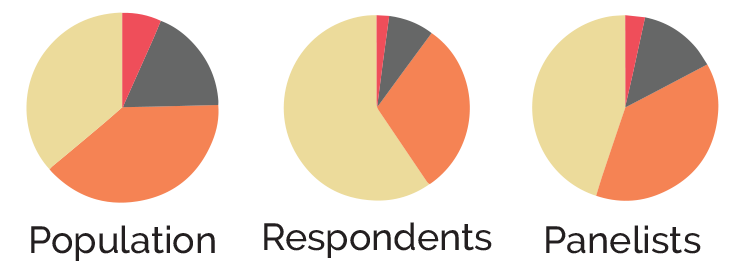Lottery Selected Panels in Local Government
A New Kind of Democracy
Lottery-Selected Panels are innovative democratic systems that help governments tackle difficult policy questions. Panelists are everyday people capable of extraordinary collaboration and sophisticated decision making.
Democratic Lotteries ensure all of us – from every walk of life – have a place in public decision-making. Panels reflect the many diversities of the communities they serve.
In-Depth Deliberation changes decision-making itself. Panelists hear from experts and stakeholders on all sides of an issue, consider policy options, and collaboratively write recommendations.

Benefits
Fosters ownership over public decision making and enhances mutual trust in governance
Boosts diversity in civic participation and increases access for historically marginalized
groups
Promotes evidence-driven public discourse, and showcases a more cooperative politics
Surfaces previously untapped ideas, and encourages effective policy co-production
The Process

Invitation
A group of randomly selected residential addresses receive a letter inviting them to participate in the Panel.

5k-15k
letters mailed

Democratic Lottery
Of those who respond to the invitation, a Panel is selected that represents the unique demographic characteristics of that community.


Information Gathering
The Panel interviews dozens of experts and stakeholders, and conducts its own research on the topic at hand. With external support, Panelists filter information and conduct gaps analyses to ensure information is strong, reliable, and reflects many perspectives on the issue.

Deliberation
Panelists define decision-making criteria, consider potential policy options, and prioritize alternatives through extensive discussions over multiple days. Panelists spend most of their time in small groups with trained professional moderators. Meticulous process designs enable collaboration between iterative small and large groups..
Feedback Loops
Collaboration between the Panel and staff or policy makers increases the effectiveness and empowerment of the process – and helps make better policy.

Recommendations
The Panel produces a set of policy recommendations, including rationales and any dissenting opinions. Their report – written entirely in their words – carries an inherent legitimacy with the public and decision makers. Policy recommendations can inform any stage of the policy process: